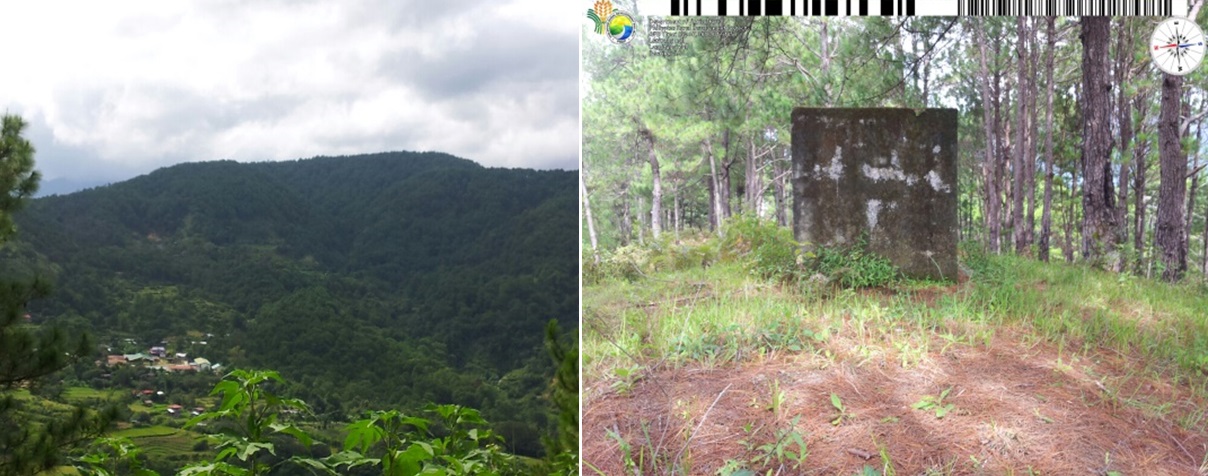 WATER SPRING, WATER SOURCE. Located at about 11 km away from the service area in Sitio Daclan, is the water spring in Palpalan Mossy Forest located in sitio Naubanan, Daclan that will end the residents’ long-standing problem of insufficient water supply. (Photo by Francis Dumagas)
WATER SPRING, WATER SOURCE. Located at about 11 km away from the service area in Sitio Daclan, is the water spring in Palpalan Mossy Forest located in sitio Naubanan, Daclan that will end the residents’ long-standing problem of insufficient water supply. (Photo by Francis Dumagas) Bokod, Benguet gets Potable Water System under PRDP
Bokod, Benguet – The distribution of safe potable water supply will soon be enjoyed by at least 14,338 residents of Bokod, Benguet, with the installation of around P12, 613,905.68 million worth of potable water system – a project funded by the DA’s Philippine Rural Development Project (PRDP).
“The municipality of Bokod can now do away with its long-standing problem of insufficient water supply,” said Dir. Lorenzo M. Caranguian, PRDP Project Director in CAR.
Caranguian announced that the PRDP Project Support Office (PSO) recently manifested approval of the awarding of contract to F.B. Bantales Engineering Construction to go ahead with the construction of Naubanan-Daclan Potable Water System in the municipality of Bokod, Benguet.
“Barangay Daclan shall directly benefit from this sub-project, with at least 1,889 beneficiaries, while Barangays Bila and Tikey shall be indirectly benefited, with at least 1310 and 645 beneficiaries, respectively,” Caranguian added.
Reports indicate that there is an existing waterwork system in the municipality, but is insufficient to supply the direct and indirect beneficiaries. Moreover, springs are said to be used as an alternative water source.
Fetching water from springs, use of water storage drums and rain collection are commonly practiced by the populace, the report added.
Accordingly, insufficient water supply is said to cause the rise of water-borne disease incidences, as well as medical expenses as a consequence, decrease of farm productivity, thereby decreasing farmers’ and resident’s income.
The project is expected to start very soon and is intended to be finished within 152 days, says Engr. Elsa P. Gaspar, Rural Infrastructure Engineer of the RPCO CAR.
Gaspar added that the recently approved sub-project has a total length of 11,016 kilometers passing through mountainous and rugged terrain.
The establishment of Level II water system is believed to increase the quality and quantity of potable water to be supplied to the community.
“Communal faucets can significantly increase the accessibility of potable water, which means that the people do not need to travel far just to fetch water from natural springs,” Gaspar added.
Being the first water system to be approved in the Cordillera, Director Caranguian urged other provinces to propose more under the PRDP’s Infrastructure component.
“Water is a very strong element that its power can affect even the economic status of a community. The potable water system is therefore recommended to be proposed by other municipalities in the Cordillera Region to provide clean and safe water supply in Cordillera households as well as farmlots,” Caranguian said. (Ma. Isabel Zabala, DA-PRDP RPCO CAR InfoACE)

Overlooking Daclan Proper is where a distribution tank for the Naubanan-Daclan PWS subproject will be constructed. It is located in sitio Ambangeg, Daclan, Bokod, Benguet. The existing tank as seen on the photo is not being utilized and will soon be replaced. (Photos by Francis Dumagas)
